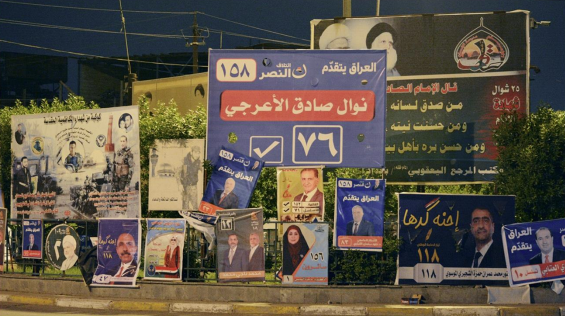
The Conflict Research Program (CRP), led by the London School of Economics Middle East Center and funded by the UK Department for International Development (DfID), is a multi-year project designed to address the drivers and dynamics of violent conflict in the Middle East. The Institute of Regional and International Studies has been tasked with conducting at least one research project per year over the course of three years on topics covering the disputed territories, governance reform in the KRG, and displacement and migration in Iraq. IRIS will produce one peer-reviewed journal article and/or policy report per project.
IRIS currently has two projects under the Conflict Research Program: Reporting the Iraqi Federal Elections and Public Authority and Iraq's Disputed Territories.
Reporting the Iraqi Federal Elections
You can read the full text of our reports at the links below:
- Iraq Votes 2018: Election Mobilization Strategies: May 2018
- The 2018 Iraqi Federal Elections: A Population in Transition: July 2018
- Iraq's 2018 Government Formation: Unpacking the Friction Between Reform and the Status Quo: February 2019
Public Authority and Iraq's Disputed Territories
- Iraq's Disputed Internal Boundaries After ISIS: Heterogeneous Actors Vying for Influence: February 2019
- The Bishop and the Prime Minister: Mediating Conflict in the Nineveh Plains: January 2019
- Security and Governance in the Disputed Territories Under a Fractured GOI: The Case of Northern Diyala: November 2018
- Iraq Synthesis Paper: Understanding the Drivers of Conflict in Iraq: October 2018
- Public Authority and Iraq's Disputed Territories: August 2018
